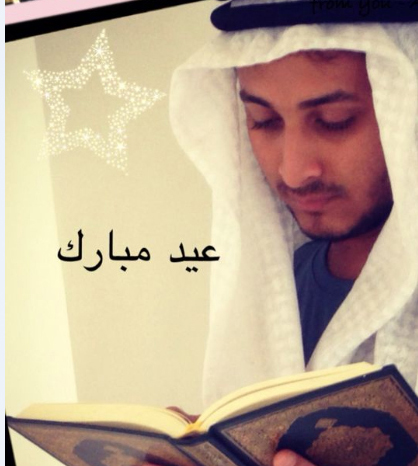Sacrifice. That's a one word definition or shall we say, the essence of the spirit of Eid-ul-Adha, the only other festival celebrated by Muslims across the globe besides Eid-ul-Fitr, that marks the end of the holy month of Ramadan.
In a symbolic gesture to commemorate the act of Prophet Abraham (pbuh) to sacrifice his own son, Prophet Ismail (pbuh), Muslims offer animal sacrifices during the three days of Eid-ul-Adha. Its important to take lessons from all that happened with Prophet Abraham (pbuh) and implement them in one's life rather than confine the occasion to mere animal sacrifices.
Allah says clearly in the Quran (22:37): “Their flesh and blood does not reach God. It is your piety that reaches Him”. Eid-ul-Adha therefore, is beyond just slaughtering animals.

From scriptures we come to know that Prophet Abraham (pbuh) was blessed with a son after a long time, almost in his old age. He had craved for a child for ages and he got one finally, who but naturally became the apple of his eye. Almighty Allah had tested him time and again and there was yet another test in store for him. God ordered him to take his wife Hajira and their son Isma'il (peace be upon him) to the valley of Mecca, following which he set out on a long journey. After arriving at a spot, a hilly area without any trees and water, Prophet Abraham (pbuh) left his wife and his beloved son at a place where nothing was visible except sand. The Prophet Ismail (peace be upon him) had attained the age of a few months only when the event of migration took place. He began to cry because of thirst. His mother began to look for water but it was not available anywhere. She ran desperately in quest of water between two hillocks called Safa and Marwa but found no water. She came back to her thirsty infant and to her surprise the spring of Zam Zam water emerged from beneath the foot of the Prophet Isma'il (peace be upon him)!
Prophet Abraham, (pbuh) had passed the test. With this, he left behind an exemplary lesson ofTouheed' (Oneness of God) for generations to follow. To leave his wife and son in a barren land, where there is absolutely no one to help and no food and water available, is something that can be achieved only by a Mu'min (believer) who believes that Allah is enough for him. He showed the same spirit of belief when he was being put in fire, which prompted the Most Benefcient to proclaim: 0' fire! Be thou a means of comfort and security for Ibrahim." (Quran 21:70).
Allah further tested Prophet Abraham (pbuh) by indicating him that he will have to give that thing in sacrifice which he loves the most. Prophet Abraham (pbuh) came forward to sacrifice his own son, whom he loved the most. He told about his dream to his son and the indication of Almighty God that he will have to sacrifice him. Ismail (pbuh) was the son of Prophet Abraham (pbuh) after all. He said: "O' my father! Do what you have been commanded to do; then you will find me of the patients." (Quran 37: 10, 11). And when he finally drew his knife across his own son's neck, came the announcement from the Lord: "0' Ibrahim! you have indeed shown the truth of the vision. Surely do We reward the doers of good." (Quran 37:105). The knife did not work and a ram was presented to Prophet Abraham (pbuh) instead which was sacrificed. Allah liked the act of Prophet Abraham (pbuh) so much that he ordered Muslims to come till eternity that it be remembered and commemorated through sacrifices.
Many lessons can be drawn from the story of Prophet Abraham (pbuh). His desire to sacrifice the thing he loves the most for his Lord, being the prominent one. We all love something or the other in our lives. This Eid-ul-Adha is an occasion to remind us that when Allah's command is placed before us, we should, asMuslims', sacrifice that which we love and obey the order of the Almighty.
Another important aspect to note is the way Prophet Abraham's (pbuh) test ends. It ends on a good note, on a typical win win situation. At the end of it all, Prophet Abraham (pbuh) did not lose his son, and at the same time pleased his Master, the Lord of the Universe. Similarly, all the sacrifices that we may have to give for the sake of Allah in our life, are bound to end on a positive note. Allah doesn't want us to lose, to suffer, to see us pained. He only tests. If we continue to be steadfast in our Faith in Him, he'll make sure that we emerge victorious at the end of the day.
So this Eid-ul-Adha, let us pledge that we will all sacrifice something or the other for Allah apart from the customary animal sacrifices. Something to do with our desires, with ournafs'. Yes, we might not be as strong a Mu'min as Prophet Abraham (pbuh). But at least we can give it a try, beginning with little sacrifices – sacrifice of sleep for prayer, sacrifice of an extra morsel of our favourite dish to satisfy someone else's hunger, or anything that we like that we may have to give up for Allah. This will, in the true sense of the term make our Eid celebration meaningful.




Comments
Add new comment